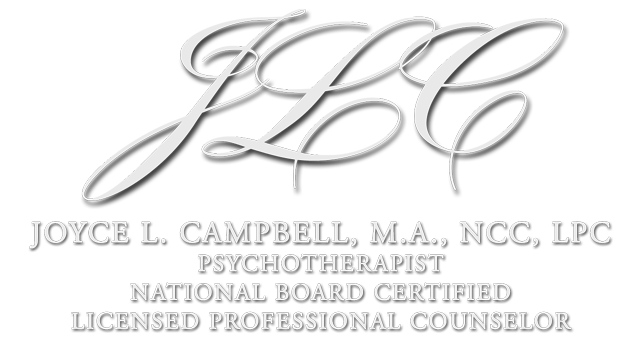Anger
Neither good nor bad is the emotion of anger. What you decide to do with anger determines the value of its use. Anger can be a primary or secondary emotion. The primary emotion of anger can be the result of a major threat; such as being chased by a bear. Naturally, the fight-flight-freeze response occurs. In that case, most likely, the fight reaction would be accompanied by anger. Anger as a secondary emotion, whether recognized or not, a different emotion was experienced prior to the anger. Perhaps you were attacked verbally by a co-worker. First, you were hurt emotionally, frustrated, disappointed or shamed. Secondly, you became angry as a result. In this blog I will primarily be focusing on anger as a secondary emotion. We don’t run into too many bears in the check-out line at the grocery store.
What is anger? The Merriam-Webster dictionary defines anger as a strong feeling of displeasure and usually of antagonism. Not a pretty picture yet neither good nor bad. The anger could be the result of a miscarriage of justice or some other occurrence that was evil. I have also heard anger defined as an emotion of protest; something has happened or about to happen and an individual or group is saying this is wrong. Again, anger is not bad in and of itself, it is what we do with anger that makes the end use positive or negative. Sharing our concerns, motivating us to tackle a colossal project or endeavor such as committing to beat chronic subjugation (compliance) are all positive uses of anger. We all know the results of uncontrolled anger that have brought evil into the world in the form of domestic violence, serial killings and terrorism, to name a few. Exclusion of specific names tied to these acts of violence is a form of my own use of anger as a protest. Denial to give the wrongdoers any recognition, even infamous acknowledgment, is unacceptable to me in this case. Rather, I choose to share with you a true story of a person who has made our world a better place through harnessing her anger, even rage, for good. Chronic subjugation would have seen them shutting down, complying with overwhelming negative emotions and never achieving the unbelievably massive work she has accumulated. This individual has literally changed our world. Accomplishing the enactment of laws and founding organizations that have saved countless lives. Refusing to give into chronic subjugation to an evil that came into her life and the bitter lifestyle it forges, she has taken steps to make evil work for good.
In May of 1980, Cari Lightner,13, of Fair Oaks, California was walking down a quiet street with a friend when hit from behind by a drunk driver. He didn’t stop. Cari’s body was thrown 125 feet, her body so mangled that none of her organs could be donated to those in need. Later, after the driver was identified and apprehended, it was revealed he had been in another hit-and-run incident two days before killing Cari. Later, when Cari’s mother Candace D. Lightner was told the details of the drunk driver’s record by a highway patrolman, she was enraged. The driver’s record included five drunk driving offenses in four years. He still had a valid driver’s license. He had served, at most, 48 hours in jail. Candace was not a stranger to tragedy associated with impaired drivers. When Cari and her twin sister, Serena, were 18 months old, their grandmother’s station wagon was rear ended by a drunk driver. In that wreck, Serena was bruised and covered with glass cuts. Six years later, her son Travis, then four, while playing in front of the family’s house, was run over by an unlicensed driver impaired by tranquilizers and distracted by her baby in the back seat. She was never ticketed. Travis suffered a collapsed lung, broken ribs, a broken leg and a fractured skull. Requiring multiple surgeries to address his injuries, Travis was left with permanent brain damage.
In her book, Giving Sorrow Words: How to Cope With Grief and Get On With Your Life, Candace Lightner wrote, “I felt enraged and helpless.” Infuriated by her daughter Cari’s death, Candace shared with a group of her friends, “I’m going to start an organization because people need to know about this.” One of her friends suggested: MADD, Mothers Against Drunk Driving. MADD became the first national anti-drunk driving movement in the United States. Among the awards that Lightner has received are the President’s Volunteer Action Award, the Jefferson Award for Public Service (cited as the Nobel Prize for public and community service). She was also chosen as one of Esquire Magazine’s New Leadership Class and Time Magazine’s Seven Who Succeeded. Testifying before Congress, statehouses, and committee hearings, her efforts have propelled the passage of hundreds of laws concerning drunk driving. The passing of the Minimum Drinking Act is due in great part to her crucial efforts. To list all of her achievements would literally take pages; however, it does bear noting that in 2014 Candace Lightner founded We Save Lives, a non-profit highway-safety based organization focused on drunk, drugged, and distracted driving. She continues to speak on the aforementioned topics and advocate for positive change. Use your anger for good. Don’t get stuck just thinking about it – actively choose an issue that angers you and seek answers about what YOU can do to change the world.
